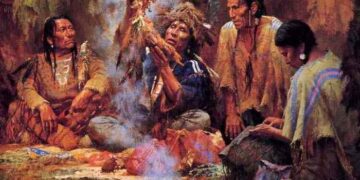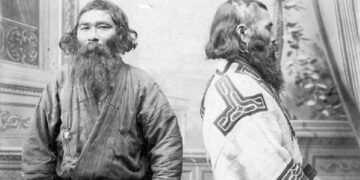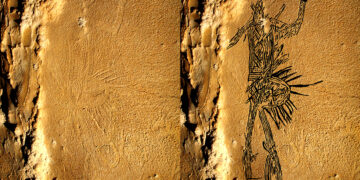In recent events, the Pentagon took action to restore webpages recognizing the contributions of the Navajo Code Talkers and other Native American veterans. This decision followed an outcry from Native American tribes after these pages were removed during a broader sweep of military content related to diversity, equity, and inclusion (DEI) initiatives. The removal, initially part of an effort to comply with an executive order issued by former President Donald Trump, sparked widespread concern, especially within Native communities. This situation serves as an important reminder of the delicate relationship between government policy and the recognition of Indigenous history.
The original removal of the content was a result of an automated process employed by the Defense Department, which aimed to eliminate any references to DEI programs. This included pages that celebrated the extraordinary contributions of minority groups, such as Native American veterans. Among these groups, the Navajo Code Talkers stood out, as they played an indispensable role in World War II, using their native language to create an unbreakable code that helped secure victory for the Allied forces.
The Navajo Code Talkers, initially recruited by the U.S. Marine Corps in 1942, were tasked with developing a code based on the Navajo language. Their code was integral in transmitting critical military messages without the enemy being able to decipher them. For example, the term for “send” was represented by the Navajo words for “sheep, eyes, nose, and deer.” This code, which was expanded over time, played a pivotal role in U.S. military communications and is considered one of the most successful codes in military history.
Following the removal of these pages, Navajo Nation President Buu Nygren expressed concerns over the erasure of such an important piece of both Navajo and American history. He emphasized the significance of the Code Talkers’ contributions and reassured the Navajo people that he would work closely with federal officials to prevent the erasure of their legacy. Nygren also made a point of highlighting that the 574 federally recognized tribes in the U.S. are sovereign nations, a perspective that has gained support among Native American leaders across the country.
In response to the controversy, Pentagon officials clarified that the deletion of the Navajo Code Talker content was a mistake. According to Pentagon press secretary John Ullyot, the removal occurred due to an automated process that inadvertently targeted pages mentioning “Navajo” and other related terms. Ullyot reassured the public that the issue would be addressed and corrected, ensuring that Native American heroes are properly honored for their service.
Despite the restoration of some of the content, concerns remain. Some leaders, like Professor and Native American advocate Dr. B. Smith, worry that the content removal might represent a broader trend of marginalizing the contributions of minority groups. Smith fears that this incident could be indicative of deeper systemic issues related to how Indigenous peoples’ history and culture are recognized by governmental institutions.
This episode underscores the importance of maintaining a respectful and accurate representation of Native American history in government resources. The Navajo Code Talkers’ legacy is a testament to the invaluable contributions that Indigenous peoples have made throughout American history, and it is essential that such legacies are not overlooked or erased. As the situation develops, it serves as a reminder of the need for continued vigilance in ensuring the cultural and historical recognition of Native Americans remains intact.






